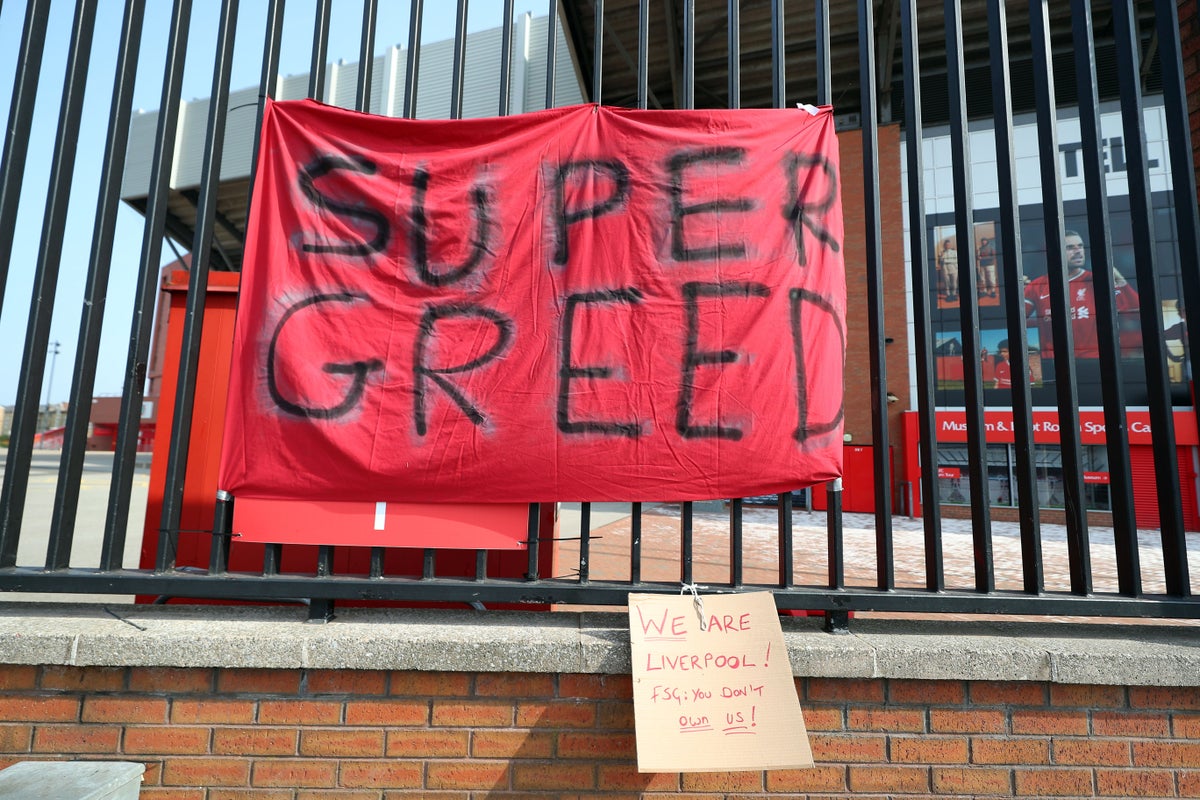
A binding ruling in the Super League case will be handed down on December 21.
The Grand Chamber of the European Court of Justice will rule that morning on whether or not UEFA and FIFA acted lawfully in blocking the creation of the Super League in April 2021, and in seeking to sanction the clubs involved.
The ruling is a binding interpretation of European Union law, and once handed down the case will then be referred back to the Madrid commercial court that will apply it to the facts of the Super League case.
Bernd Reichart, the chief executive of A22 which is promoting the concept of a new European league, said: “Club football is on the eve of major change. We hope the European Court of Justice will end the monopoly of UEFA and enforce the fundamental freedoms of the European Union in the world of football.
“Fans, clubs, players and the sport of football would be the winners in a market that is open for a competition of ideas and in which clubs could govern and organise a European football competition without fear of threats.”
The Advocate General’s opinion in this case was issued on December 15 last year, and was warmly welcomed by UEFA and FIFA.
The AG, Athanasios Rantos, said those bodies’ rules allowing them to block new competitions wishing to operate under their auspices were compatible with EU law.
UEFA described the AG opinion as “unequivocal” and a “clear rejection” of the efforts made by 12 of Europe’s top clubs in 2021 to form their own league.
AG opinions often – but not always – closely mirror the final Grand Chamber ruling.
The announcement of a new Super League featuring the Premier League’s ‘Big Six’ came late on the evening of April 18, 2021. Within 72 hours, nine of the clubs, including all of those from England, had announced their intention to withdraw amid opposition from UEFA and FIFA, outrage from supporters and threats of a “legislative bomb” from former British Prime Minister Boris Johnson.
Much of the criticism at the time centred on the ‘closed’ league concept – the 15 founder members would be immune from relegation, with five teams invited to join on an annual basis.
Only Real Madrid and Barcelona of the original 12 now remain supporters of the concept, with Juventus announcing earlier this year it had begun the withdrawal process.
A22 is seeking the right to form an open, multi-division competition featuring 60 to 80 teams, but crucially is yet to set out how domestic performance would play into qualification.
Reichart, speaking at Leaders Week last Thursday, highlighted that the AG had pointed out that UEFA has “the obligation to ensure that third parties are not unduly denied access to the market”.
On the same day as the Super League ruling, the ECJ will also issue its decision in the case between Belgian club Royal Antwerp and that country’s football association, the KBVB.
Antwerp are challenging the rules around homegrown player requirements at domestic and European level.







